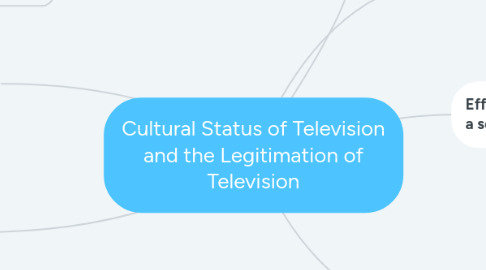Cultural Status of Television and the Legitimation of Television
by Natalie Nguyễn

1. Legitimation in the convergence era
1.1. Distinction of "good TV" and "bad TV" with the acceleration of technological advances
1.2. (Henry Jenkins) convergence era provides more possibilities for participation and collaboration
2. 'Old' VS. 'New' TV > Distance from the 'old' TV (Levine and Newman)
2.1. New TV becoming more like cinema
2.1.1. Consciously moving television towards the film aesthetics
2.2. New technologies --> new possibilities
2.3. New technologies and digital tools -> blurring the distinction of different contents
2.4. Different kinds of audiences (those who have class/taste and those who don't)
3. Changed hiearchy: Now omnivorous vs. narrow tastes
3.1. Elites distinguishing themselves from the regular consumers
3.2. Tastes are not purely aesthetic or personal, but they are the results of cultural and social structure. Tastes are linked with class division, and subsequently economic and social opportunities. (Pierre Bourdieu)
3.3. Hierarchies or distinctions of high/low cultures are not permanent but in flux depending on the social and historical contexts (Lawrence W. Levine and Paul DiMaggio)
4. Effort to legitimate television as a serious and artistic medium
4.1. Positive view: It's a sign that cultural hierarchies are dismantled or that cultural boundaries are crossed. Ordinary people now are taken seriously. (John Seabrook, Bethany Bryson, Richard A. Peterson, Roger M. Kern)
4.2. Critical view: While it appears to be a good sign, legitimation of television can segregate audiences within one medium, placing one group of audience over another, affirming cultural power dynamics: masculine over feminine, young over old, active over passive (Michael Z. Newman and Levine Elana)
5. Seen as a "Higher" form of art
5.1. Cultural elites (journalists, producers, executives) investing more in television to legitimate it
6. Used to be a "lesser" form of entertainment/medium
6.1. (Andreas Huyssen, Lynne Joyrich, Patrice Petro, Michele Hilmes and others): Feminization and domestication of television, reflecting cultural power structures


